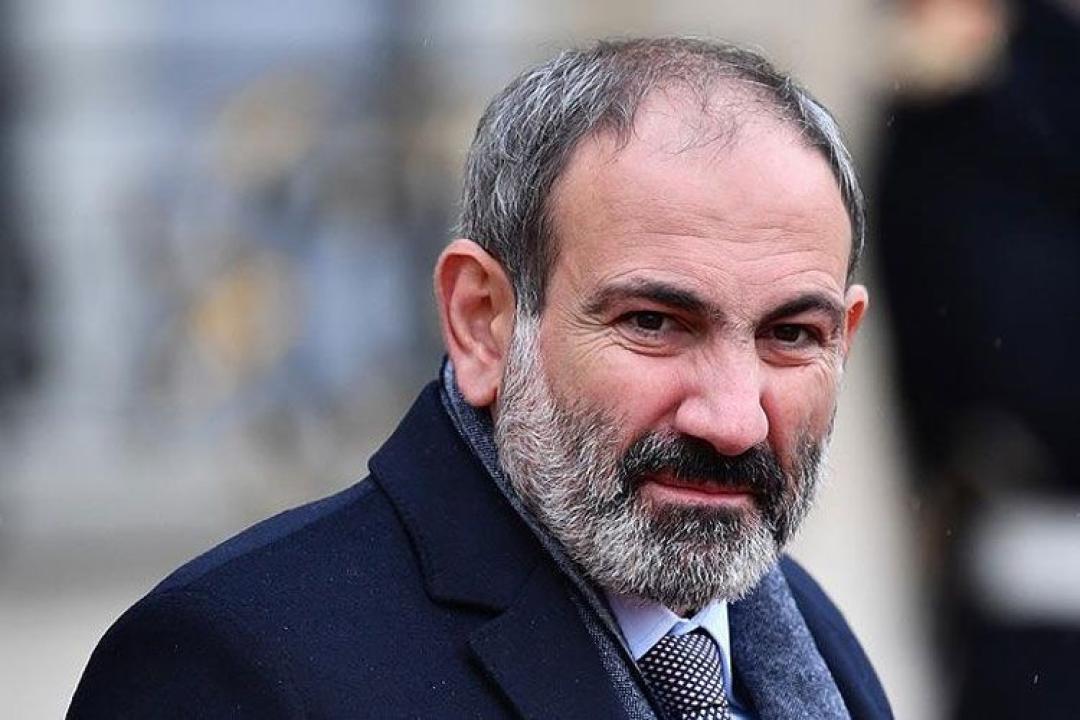
Political crisis in Armenia: Tsarukyan and Marukyan insist on Pashinyan’s resignation

On 29 December, the leaders of the Armenian parliamentary opposition parties Prosperous Armenia (BHK) and Bright Armenia (LHK), Gagik Tsarukyan and Edmon Marukyan, both rejected the notion to hold snap parliamentary elections in the country in 2021 following their meeting with Armenia’s Prime Minister Nikol Pashinyan.
“I said to the prime minister what I had said publicly: that his resignation is necessary for getting the country out of this situation. That is the only way out,” stated Tsarukyan. He added that his position did not change and that Pashinyan needs to step down as soon as possible.
Tsarukyan’s parliamentary colleague Edmon Marukyan also insisted on Pashinyan’s resignation. He said they reached no common ground on how to end the political crisis in the country. He warned that he and his party will try to block the conduct of election polls in the country if Pashinyan continues to reject the opposition demands. “This parliament cannot be dissolved without the consent of Bright Armenia and Prosperous Armenia,” he claimed. Pashinyan did not make public statements after his talks with the two parliamentary opposition leaders.
The Armenian news agency Mediaport even released details on the meeting between Pashinyan and Marukyan that only lasted 20 minutes. According to Mediaport, Pashinyan proposed that Marukyan could sign a memorandum stating that in case of his resignation the parliament will not nominate another prime minister candidate but Marukyan turned down this proposal. Subsequently, Pashinyan said that in that case they will resort to self-dissolution of the parliament, but Marukyan countered that the number of the parliamentarians of the ruling bloc was not enough for self-dissolution. In response Pashinyan said that parliamentarians Sergey Bagratyan, who has left BHK in the National Assembly, and the “independent” lawmaker Arman Babajanyan, would do what Pashinyan asks, and that respective work would be carried out with the other parliamentarians too. Marukyan, in turn, demanded that Pashinyan resign without preconditions, after which they will agree to hold snap parliamentary elections.
In addition, the Armenian parliament voted to dismiss Naira Zohrabyan (BHK) as the chairwoman of its standing committee on human rights, following her Facebook post where she wrote: “I am not going to hand over my homeland to the scum.” The pro-government lawmakers were quick to condemn such comments, saying that Zohrabyan lost her moral right to lead the parliamentary committee because she not only insulted hundreds of thousands of Armenians but also called for them to be stripped of their civil rights. Zohrabyan denied insulting anyone, emphasising that her message was directed to those who supported Pashinyan in signing the 9 November trilateral statement on Nagorno-Karabakh. She added that this move was a political prosecution and that she would appeal to the country’s Constitutional Court.
The chairman of Armenia’s Supreme Judicial Council Ruben Vartazaryan commented on the accusations from the ruling elite that Armenia’s judiciary serves the interests of the opposition. He insisted that the courts do not execute orders issued by the government or the opposition, nor are they influenced by public opinion. In the last few months various Armenian judges have refused to allow law-enforcement authorities to arrest dozens of opposition leaders and members as well as other anti-government activists. Pashinyan stated in response to such actions that Armenia’s judicial system has become part of a “pseudo-elite” which is trying to topple him in the aftermath of the Nagorno-Karabakh war. The country’s Justice Minister Rustam Badasyan likewise accused judges in Armenia of routinely acting in an unprofessional and “non-objective” manner. Vartazaryan dismissed those statements while admitting that “as a citizen” he has “many questions” about decisions made by local courts. He said that the Armenian Justice Ministry and law-enforcement agencies have legal authority to initiate disciplinary action or criminal proceedings against allegedly delinquent judges.
Amidst the ongoing political crisis in Armenia and the unresolved issues on border demarcation in the Syunik province (Caucasus Watch reported), the country’s Ombudsman Arman Tatoyan, sent an official inquiry to the Armenia’s foreign ministry regarding Syunik. “Delimitation and demarcation of state borders are consistent bilateral international processes that require a joint commission and professional discussions and negotiations within its framework. The primary condition for these processes is the existence of normal bilateral relations, including diplomatic ones, between bordering states,” emphasised Tatoyan.
“The first stage of the work of such commissions, as a rule, ends with a separate bilateral agreement on the legal basis for demarcation, and then, after demarcation, also with the joint implementation of the demarcation process. After the commission successfully completes the bilateral process, the two countries conclude an agreement on the border, which stipulates the resolution of all border problems. Before the start of the mentioned processes and their successful completion, the deployment of the armed forces or border troops for combat duty along the state border is an exclusively defensive measure and a security measure at the borders under the actual control of the parties, agreed directly or indirectly between representatives of the armed forces. Consequently, the implementation of the ongoing activities is not related to issues of status, cannot be interpreted as a final agreement on delimitation or demarcation, or as a mechanical approval of the existing administrative boundaries,” he added.
It was also reported that Armenia’s Chief of National Security Service (NSS) Armen Abazyan had a meeting with his Azerbaijani and Russian counterparts Colonel-General Ali Nagiyev and Alexander Bortnikov in Moscow. During the meeting, a number of issues were discussed, including those related to the exchange of prisoners of war and the search for missing persons. As a result of the meeting, agreements were reached on carrying out work in various areas.
See Also


Simonyan: “Armenia Should Trade with Turkey and Azerbaijan Instead of Closing Borders”

Mirzoyan Meets US Deputy Assistant Secretary Joshua Huck

Azerbaijani President Holds Talks with UAE and German Business Delegations on Economic Cooperation

Grigoryan Confirms Armenia’s Readiness to Dissolve OSCE Minsk Group Upon Peace Treaty Signing

